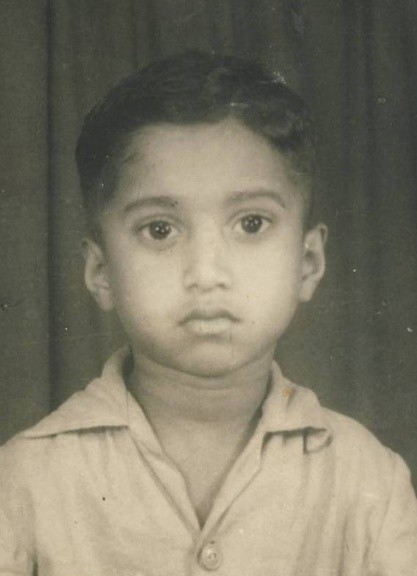
The Question That Never Ends: “What Is Your Real Name?”
Since I stepped onto this soil, not a week has passed without someone asking, “What is your real name?” And my answer has always been the same: Mike Ghouse.
But I see the hesitation on their faces. They struggle to phrase their next question, trying to ask—without asking—about my nationality or religion. I smile at their indirect approach and say, “It’s Ghouse; Mike Mohamed Ghouse.”
I’ve been saying this for over 45 years, and I still see the same puzzled expressions. Some find it amusing, some find it suspicious, and others make assumptions about why I chose this name.
Today, I want to share the real story behind it.
Three Common Myths About My Name
People often make three common assumptions about my name:
- “Mike” is a patented name – No, it isn’t. Just like any other name, it is free for anyone to use.
- Names are religious – False. No holy book (Quran, Bible, Torah, or Gita) provides an official list of names.
- “Mike” is a Western name – Actually, the name Michael (Mike) existed in India long before it was adopted in Europe.
Despite these facts, both Muslims and Hindus have criticized my name for different reasons.
Facing Criticism for My Name

Over the years, I’ve encountered wild theories about why I chose “Mike”:
- A right-wing Muslim critic once accused me of adopting “Mike” to impress Westerners.
- A right-wing Hindu claimed I was deceiving Americans into thinking I was Christian.
- Someone even questioned Aligarh Muslim University for listing me as a high profile speaker because of my name!
None of these critics bothered to visit my website or ask me directly. They made assumptions based on their biases, without knowing my background.
So let me set the record straight.
Why “Mike”? The Story Behind My Name

My birth name is Mohamed Ghouse, and my alias name is Sardar—a name used by my relatives, close friends, and the people of my hometown, Yelahanka, a suburb of Bengaluru.
In Bangalore’s tradition, people of my generation often had an alias name in addition to their birth name. Mine was Sardar—named after Sardar Patel, the Indian leader.
But then, in my late twenties, something happened that changed everything.
How “Mike” Became My Name
In the mid-seventies, I worked in Dhahran, Saudi Arabia with Fluor Corporation as a Deputy Controller of Finance. During this time, Mr. Everett Blauvelt reported to me from the site in Uthmaniya, one of the five sites I managed. In December 1977, my father, Abdul Rahman, passed away in India. I had long dreamed of taking care of him, but fate didn’t allow me that chance. He worked tirelessly until his final breath, helping the people of Yelahanka, where he was once a Mayor despite Muslims making up only a small fraction of the town’s population.
After my father’s passing, Mr. Blauvelt became a guiding presence in my life. and we spoke daily, and over time, he became a father figure to me. He encouraged me, and even played a crucial role in my journey to the United States.
It was he who started calling me “Mike”—and the name stuck.
Out of respect for our friendship, I officially added “Mike” to my name when I became a U.S. citizen. It is now legally part of my identity:
Mike Mohamed Ghouse

And I wouldn’t want to be called anything else. It was a joy to me when my mother wrote letters to me (no emails or Whatsapp then) addressing my name as Mike Mohamed Ghouse, that was my approval.
Why Do People Care So Much About Names?
Names are powerful. They shape perceptions, define identity, and sometimes even invite prejudice.
Religious Misconceptions About Names
Many Muslims assume that Islamic names must sound Arabic. But let’s look at history:
- Prophet Muhammad’s own name was given to him at birth—by a pagan family.
- His wife, Khadija, never changed her name, so was his daughter’s name; Fatima
- His closest companions (Abu Bakr, Umar, Uthman, and Ali) kept their original names.
- Islam never required name changes for new converts.
In fact, when Muslim rulers expanded into Persia and Egypt, they did not force locals to adopt Arabic names. The idea of a “Muslim name” is more cultural than religious.
A Hindu Name? A Muslim Name? A Christian Name?
The truth is, names belong to everyone.
Many Christians in Pakistan and Middle East have names like Iqbal, Kareem, Jameel, or Fatima—traditionally thought to be “Muslim” names, and Hindu Sounding names in India.
Many Muslims in Indonesia and other place have names like Gandhi, Savithri, Ram, Krishna, etc., assumed to be Hindu names.
In America, names are becoming more diverse and universal. Within the next two generations, it will be hard to tell a person’s religion just from their name.
A Name Can Open Doors—or Close Them
In 2009, I gave a presentation on the Quran at the Parliament of the World’s Religions in Melbourne, Australia.
The room was packed, and I noticed two full rows of Iranian and Saudi clergy. They weren’t there to learn about the Quran—they were curious why a “Christian” was speaking about it!
This is the bias names create.
In 2010, I faced a similar situation at Al-Aqsa Mosque in Jerusalem.
At the heavily guarded entrance, an Israeli soldier asked me to prove I was Muslim. He assumed “Mike” was not a Muslim name. After questioning me extensively, he made me recite Shahadah (the Muslim declaration of faith) and Surah Ikhlas.
Even then, he wasn’t convinced. He turned me over to the Palestinian guard, and went thru the same drill.
I had a funny idea to tell the Jewish soldier that I am a Muslim, but the Dutch Imam in front of me noticed the mischief in my eyes and advised me to stop. He pointed out that Jews and Muslims share many similarities.
Without “Mike” as my first name, I might not have been questioned at all.
Final Thoughts: Living Without Bias

At the end of the day, a name is just a name.
What truly matters is the kind of person you are. I live by a simple philosophy not to be judgmental about anyone. Only God judges about your faith not even a Muslim as it amounts to Shirk.
👉 “Died with Prejudice Towards None” is the inscription I would like have on my headstone, in Urdu, Hindi, Kannada, and English—the languages of my life.
Because beyond all labels—Muslim, Hindu, Christian, or atheist—we are all human beings first.
So yes, my name is Mike Mohamed Ghouse.
And that name will never change.
FAQs About Names and Identity
1. Why did you choose “Mike” instead of keeping just “Mohamed Ghouse”?
“Mike” was given to me by a mentor who was like a father. It carries deep personal meaning.
2. Is “Mike” a Muslim name?
There’s no such thing as a “Muslim name.” Islam doesn’t require specific names.
3. Do you face discrimination because of your name?
Sometimes, but I also see it as an opportunity to educate people.
4. What do you say to critics who judge your name?
I say: “Forgive them, Lord, for they know not.”
5. Will names matter less in the future?
Yes! The world is becoming more diverse, and names will no longer define religion or nationality.
Featured Profiles and Articles
- Mr. Pluralist of America – Indian Panorama Feature
A detailed profile on Dr. Mike Ghouse’s contributions to pluralism in the United States.
Read the article → - Pluralist and Muslim Background of Dr. Mike Ghouse
A personal reflection on his Islamic roots and his journey toward becoming a leading interfaith advocate.
Explore the background → - Wikipedia Entry: Mike Mohamed Ghouse
An encyclopedic overview of Dr. Ghouse’s life, work, and recognitions.
View on Wikipedia → - MuslimPedia Profile: Mike Ghouse – A Pluralist and Peace Advocate
A feature highlighting his efforts as an interfaith speaker, peace activist, and author.
Read on Medium → - Mike Ghouse – 60 Page Profile Booklet (PDF)
A pictorial and documentary archive of Dr. Ghouse’s achievements, public engagements, and recognitions.
📌 Note: Last updated in 2016.
🔹 Personal Blog
- The Ghouse Diary
Dr. Ghouse’s official blog – a rich collection of essays, reflections, media appearances, and ongoing interfaith efforts.
Stay updated with his thoughts on America, Islam, India, religious freedom, and social justice.

